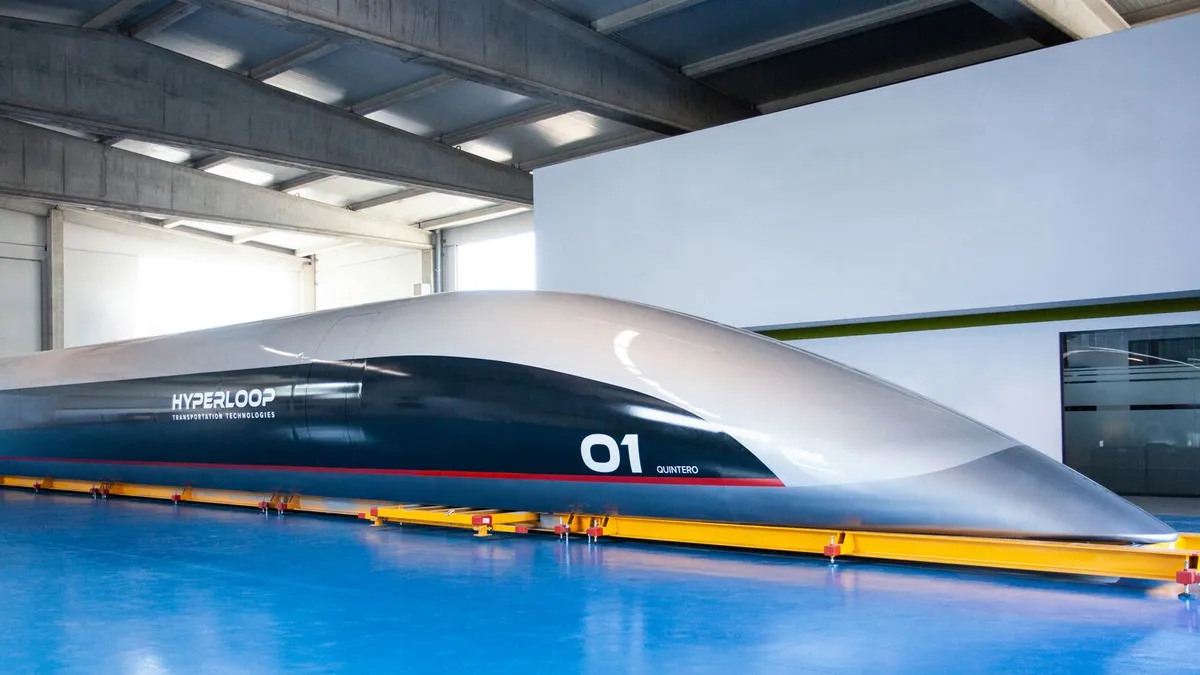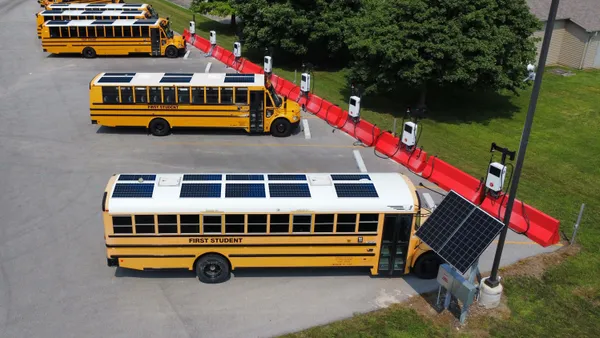Dive Brief:
- The U.S. House of Representatives recently approved the 2020 Transportation, Housing and Urban Development (THUD) bill, which includes $5 million for the Department of Transportation's (DOT) newly formed Non-Traditional and Emerging Transportation Technology (NETT) Council.
- The funding would go toward developing safety and environmental standards for new modes of transportation such as autonomous vehicles (AVs) and hyperloop. The Northeast Ohio Areawide Coordinating Agency (NOACA) notes that a hyperloop being explored between Chicago and Cleveland could get federal funding through the bill.
- Virgin Hyperloop One also was on Capitol Hill last week to show members of Congress and stakeholders its technology and give updates on pending hyperloop projects across the country.
Dive Insight:
NETT was established to identify and solve jurisdictional and regulatory gaps that could interfere with launching new transportation technologies. NETT specifically names tunneling, hyperloop and AVs as some of those technologies.
The NETT Council will help to break down governmental silos and assist investors with obtaining permits, safety authorizations and funding from DOT.
The Chicago-Cleveland project would be developed by Hyperloop Transportation Technologies (HTT). A $1.2 million feasibility study is underway and expected to be completed this fall. That study is jointly funded by NOACA, the Ohio Department of Transportation, Ohio Turnpike Infrastructure Commission and The Cleveland Foundation.
The goal is to get a high-speed corridor connecting the Midwestern cities that would transport passengers in about half an hour, down from the roughly six hours the trip takes by car.
Virgin Hyperloop One highlighted other projects in Ohio, Missouri, Nevada and Texas. The company kicked off a cross-country summer "roadshow" to showcase its XP-1 vehicle, and to educate and connect with communities and government leaders. The company says its technology could transport passengers and cargo three times as fast as high-speed rail, and it could help regional cities connect just as easily as subways connect local city neighborhoods.
The THUD bill still has to make it through the Senate and get the president's approval before the funding can be allocated. If the federal government ends up approving this appropriations bill, it would be a huge step forward and a stamp of legitimacy for hyperloop.











